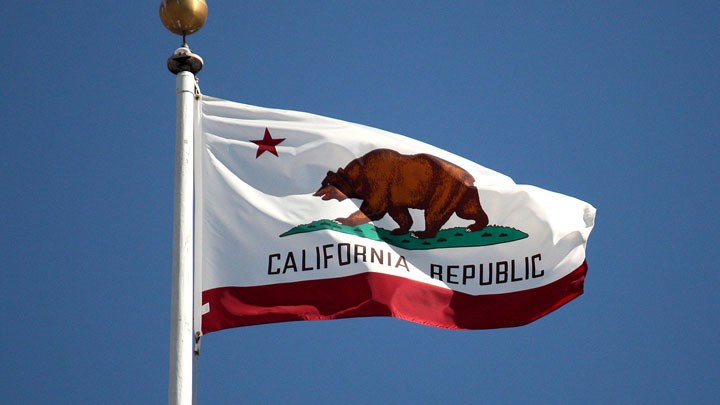
by Catherine E. Semcer - Monday, June 1, 2020

While the global tourism slowdown brought on by COVID-19 wreaks havoc on hunter-supported wildlife conservation efforts in Africa, hunting’s opponents are using the pandemic to justify increased restrictions on the importation of African hunting trophies into the United States. In the name of limiting the spread of wildlife-based diseases, the California Senate Committee on Natural Resources and Water recently approved legislation that would prohibit hunters in California from importing and possessing legally hunted African wildlife.
Should the legislation become law it will create a disincentive for Californians to hunt in Africa, something likely to lead to decreased funding for habitat conservation and programs to combat illicit wildlife trafficking, both of which are critical to preventing the next pandemic.
I was invited by members of the California Senate to testify before the committee on this legislation. The sponsor and supporters of the bill argue that banning the importation and possession of elephant, lion, rhino, zebra and other legally hunted wild game is essential to protecting public health, noting that 70 percent of the world’s emerging diseases are thought to originate in wildlife hosts.
While this is true, it is also true that birds, pangolins, rodents and primates are believed to be the most likely hosts for diseases that threaten humanity and that there are no known instances of imports of any of the game species listed in the legislation being a source of disease outbreaks. It is also true that legally hunted wild game animals imported into the United States are subject to a strict permitting and inspection process to help ensure that they were legally acquired and do not present a health risk.
The key truth is that banning the importation and possession of hunted African wild game animals will do nothing to safeguard public health. Indeed, so-called trophy import bans are likely to make it harder to prevent the next pandemic because they will discourage American hunters from visiting Africa where their presence creates economic incentives and revenue necessary to conserve habitat, combat illegal wildlife trafficking and improve sanitation and healthcare.
With past outbreaks of Ebola, Lassa fever and other wildlife-transmitted diseases having been linked to the development of wild areas, habitat conservation is now recognized as a critical first line of defense against global pandemic.
Africa’s hunting industry provides the economic incentive to conserve habitat on a grand scale. The economic incentives created by hunting in Africa keep the continent’s remote areas remote, conserving a total area more than six times the size of the U.S. national park system. The targeted banning of imports on false pretenses in the hope it will discourage U.S. hunters from visiting Africa increases the likelihood that wildlands conserved through hunting will be cleared for logging and agriculture, bringing large groups of people and wildlife into ever closer contact and possibly unleashing the next pandemic on humanity.
Hunting’s role in habitat conservation is not it’s only contribution to public health. Revenues generated by Africa’s hunting industry also support efforts to confront poaching and illegal wildlife trafficking as this NRA website regularly tracks.
Because it is unregulated and happens in the shadows, the illegal trade in wildlife, especially for species like pangolin, can play a key role in the transmission of diseases between wildlife and humans. In Tanzania, nearly all of the funding for the Tanzania Wildlife Authority’s anti-poaching efforts is derived from money raised from hunting permits and other fees and licenses. Existing federal restrictions on the importation of legally hunted lions from the country already have caused these revenues to fall by 23 percent, significantly limiting the agency’s anti-poaching capacity. It should be expected that import bans like the one approved by the California Senate will only create further such limits in Tanzania and other African countries.
Finally, the revenues generated by hunting support the creation of critical infrastructure necessary to combat the spread of disease. For example, in Zimbabwe’s CAMPFIRE areas, or Community Areas Management Program for Indigenous Resources, rural communities receive a share of the revenues generated by hunting operators who lease the rights to hunt on communal lands. These revenues have been used to increase access to clean water, which is critical for good sanitation, and build medical clinics that can both treat the sick and serve as a global early warning system when disease outbreaks do occur.
For these reasons public officials seeking to decrease the chances of another global pandemic should work to amplify and expand the positive impacts of legal, regulated hunting in Africa, not diminish them. Unfortunately, the California Senate Committee on Natural Resources and Water chose to do the latter, voting 5-1 to approve the ban on the importation and possession of legally hunted African wildlife. The bill now heads to the wider Senate for further debate where the positive impacts of hunting on public health will hopefully be given greater consideration.
About the Author
Catherine E. Semcer is a research fellow with the Property and Environment Research Center in Bozeman, Montana, and the African Wildlife Economy Institute at Stellenbosch University in Stellenbosch, South Africa. Previously she served on the executive team of Humanitarian Operations Protecting Elephants, a boutique NGO providing support to African anti-poaching programs.
E-mail your comments/questions about this site to:
[email protected]
Proudly supported by The NRA Foundation and Friends of NRA fundraising.
